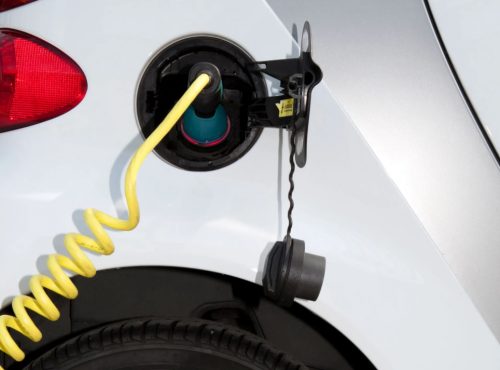“ElectReon” has been developing a system to charge electric vehicles (EVs) while in full motion using copper coils laid beneath the asphalt to transfer energy from the electricity grid to the road and to manage communication with approaching vehicles. Receivers are installed on the floor of the vehicles to transmit the energy directly to the engine and the battery while the vehicles are on the go, doing away with concerns about limited driving range and short battery lifespans.
Electreon already has a number of running partnerships in Europe to pilot its “Wireless Smart Road” Tech in Germany, France, Belgium and Sweden.
ElectReon has also expanded its partnership with the Tel Aviv-Jaffa Municipality and the Dan Bus Company, with plans to launch a large-scale commercial deployment of its wireless charging infrastructure to power electric vehicles in Tel Aviv. ElectReon has inked a $9.4 million deal to roll out tech that will power 200 public buses at city terminals.
The $9.4 million deal includes a five-year agreement to supply some 200 public buses operated by Dan with active charging at city terminals between bus trips and while passengers board and disembark. In the first stage, ElectReon will integrate its charging systems into 100 buses at the Reading public transport terminal in north Tel Aviv, after which the charging infrastructure will be expanded to other major terminals in the city and in the south region of Israel for a total of 200 buses, the company said in a statement on Tuesday.
ElectReon will finance the charging infrastructure at the terminals and provide operational services and maintenance throughout the length of the project. The Dan Bus Company will pay a monthly fee for the service, according to the agreement.
This summer, ElectReon welcomed former Israeli president Reuven Rivlin as company president to “enhance the company’s collaboration with governments and global companies, as well as to share our activities with decision-makers around the world.”
“With ElectReon there is an incredible opportunity to decarbonize the transportation sector by growing a network of electrified roadways that will make EV ownership more attainable,” Rivlin said in a post at the time.
In Sweden, ElectReon has installed a 1.65-kilometer (1-mile) electric stretch used by a bus and a truck on the 4.1 kilometer (2.5 miles) route between the airport and town center of Visby on Gotland Island.
The startup’s initial pilot project in Tel Aviv, announced last year, was to trial an electric public transportation system and to actively charge a bus from a half-mile of electrified wireless road between Tel Aviv University and the nearby train station where wireless stationary charging stations were also installed.

The company said the pilot showed that “the bus operator was able to reduce the vehicle battery capacity by 90% by enabling the bus to actively charge while driving as well as increase vehicle operational hours due to the fact that less downtime for charging was required.”
In Tuesday’s announcement, ElectReon said the company and its partners “will explore the possibility” of installing its wireless charging systems in the rest of Dan’s fleet of electric buses fleet and on the Ayalon highway in Tel Aviv.
ElectReon CEO Oren Ezer said that the new agreement not only marks the company’s “first large-scale commercial project,” it also widely showcases “wireless EV charging for fleet vehicles.”
“This will continue to demonstrate the improved efficiency and cost savings that electric bus fleet operators can expect by implementing wireless charging infrastructure,” he added. “This momentum signals the growing need today for EV charging solutions across the global transportation market beyond the traditional charging station that enables a more seamless transition to electrification.”
Ofir Karni, CEO of Dan Bus Company, said ElectReon’s “advanced technology is expected to enable our electric fleet to achieve greater range and extended operational hours while flattening peak energy consumption loads from overnight depot charging and simultaneously, allow us to maintain our essential maneuvering space and operational flexibility at our terminals.”
Source: Ricky Ben David,The Times Of Israel, ElectReon
Image credit: ElectReon





